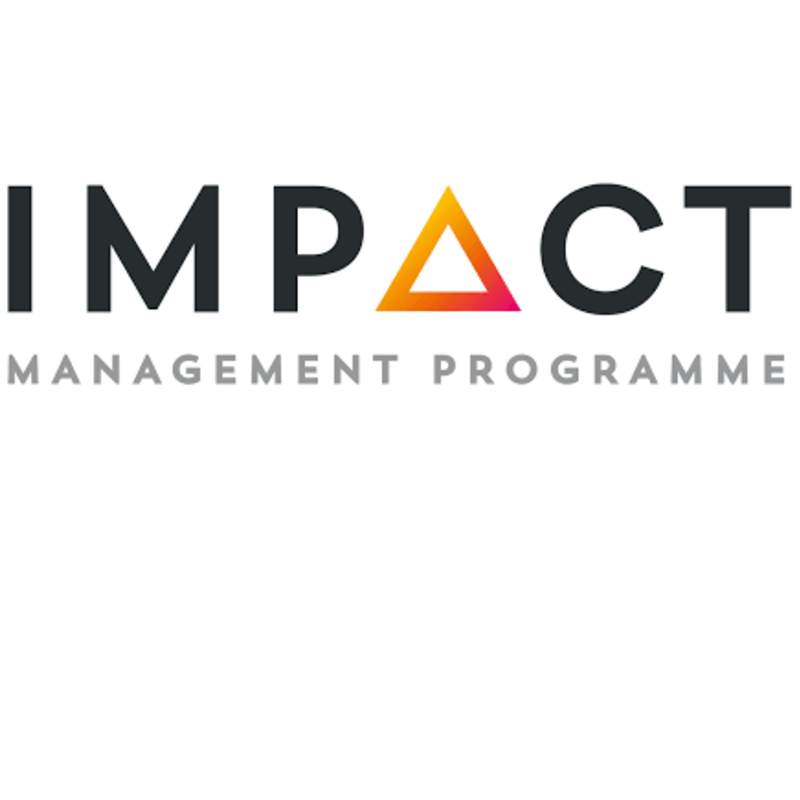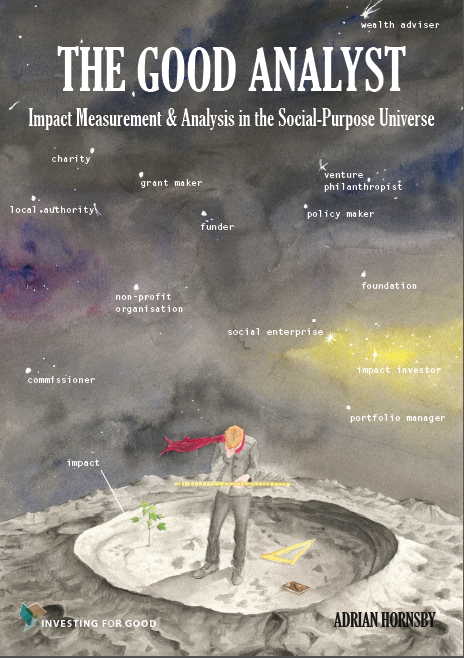
NEWS
IFG works with social investment fund Impact Ventures UK
Check out our latest Social Audit work for Impact Ventures UK. We helped the social investment fund understand how well it assessed the impact of potential and existing investments against best practice.
Grant Programme for Impact Management
Investing for Good is delighted to be an approved provider to the Growth Strand of the Impact Management Programme, funded by the Access Foundation and Power to Change.
Find out how to apply for the grant here
Investing for Good is delighted to be an approved provider to the Growth Strand of the Impact Management Programme, funded by the Access Foundation and Power to Change. The goal of the programme is to support charities and social enterprises to increase their social impact and diversify their income. The programme offers training and grant funding to help organisations develop impact management systems that increase their ability to increase their ability to reliably drive outcomes for beneficiaries and meet the needs of investors and/or commissioners. We can help you put together an application to the grant fund, and work with you to improve your impact management capabilities. £1.8m available in total, with around 40 grants expected to be made, with an average size of £50,000.
What is impact management?
Impact management goes beyond impact measurement. It is about actively using the impact data you collect to manage your performance and improve your services, your outcomes and the lives of your beneficiaries. It is about using your data to learn, and refine your processes and programmes as you go.
Who is this for?
Are you a social purpose organisation operating in the UK?
Are you seeking investment or contract opportunities?
Is your leadership engaged and dedicated to understanding and improving the impact of your organisation?
Do you have theory of Change, and already have somewhat of an impact approach, but need help to improve how you manage your impact on a regular basis? Then this programme could be for you! To find out more about eligibility criteria, click here.
What is the application process?
Find out more
If you want to find us more, call us on 0771 0064 610. Or email us at eoi@investingforgood.co.uk
Big Potential Advanced with Buzzacott
Investing for Good to work with Buzzacott to help organisations secure new forms of investment Big Potential Advanced with Buzzacott
Getting organisations investment-ready Big Potential Advanced is delivered by The Social Investment Business on behalf of the Big Lottery Fund and is aimed at ensuring social organisations are better equipped to secure new forms of investment.
Are you eligible for Big Potential Advanced? Big Potential Advanced supports more established organisations that are looking to raise in excess of £500k. The programme will deliver approximately £10m of grant funding until late 2017 enabling eligible organisations to access grants of between £50k–£150k for specialist investment readiness support from an approved Big Potential provider.
Investing for Good is an approved provider to the fund working in conjunction with its partner Buzzacott and has a longstanding track record of providing investment readiness support.
Impact Platforms - Silver bullets or a poisoned chalice?
IFG’s newest recruits recently travelled to Oxford to sample Marmalade, an open-access fringe event to the Skoll World Forum on Social Entrepreneurship.
IFG’s newest recruits recently travelled to Oxford to sample Marmalade, an open-access fringe event to the Skoll World Forum on Social Entrepreneurship.
We dropped into several sessions during day two of the festival, but it was the workshop entitled - “Silver bullets in slingshots: Beyond killer platforms for social good” that intrigued us the most as we cast our eyes over the bumper five-day schedule of workshops, panels and networking events.
Everyone in the room added a social impact tech platform on a post it and it soon became clear there are lots... and lots...
Even before we arrived, the call to arms was set – to truly overcome the planet’s greatest challenges and properly harness the collective groundswell of energy for change, wouldn’t it be better if all those in the impact investment space thought beyond our own, sometimes niche, networks and platforms and considered how greater inter-connectivity could be built into our current work streams? Therefore, to truly create an ecosystem that was greater than the sum of its parts and capable of moving innovations and capital at scale.
The two-hour session was led by Astrid Scholz (CEO, Sphaera) and Audrey Selian (Director, Artha Initiative). We started by crowd-sourcing names of the many, many platforms that exist in the space. The photo below is proof of the fragmentation within the sector and collectively represents an outlay of over £60m on development costs alone, while only one platform has achieved financial sustainability to date.
After a lively debate about the virtues and pitfalls of the aforementioned platforms, our hosts shared an update on a recent project where they had sought to break free of their own organisational silos.
Astrid & Audrey explained how they had come to realise that their respective organisations had essentially been operating at opposite sides of the same coin. For Sphaera, the focus is at the “ideation” stage – identifying, sharing and scaling solutions, while Artha provide the information management platform for entrepreneurs, investors and intermediaries to collaborate. Traditionally, both offerings would function separately with end users needing twice the amount of account logins, time and patience to participate.
The key to the Sphaera- Artha collaboration was opening back-end systems through APIs (application programming interfaces) to share information seamlessly – so the end user can use each of their preferred specialist tools without having to repopulate data over and over. Think using your Google account to speed around the web with a single-sign on.
Of course, a change in mindset away from platforms purely competing with one another is first required; impact communities exist and impact technology exists to connect those communities, but in the market at present no provider is big enough for the data layer to become sufficiently scaled to truly drive outputs. To make this happen either the number of technology platforms will have to consolidate, or the various actors must find a way to share data more successfully and accept that being part of a larger, richer eco-system where each other’s objectives, incentives and financial realities are acknowledged. This is where real progress will be made. The theory extends that that this will also encourage and enable platform creators to offer one service well rather than several services poorly.
Clearly there are real challenges over data sharing and other trust issues that will need to be worked through sensitively, but the aspiration is to make this sector more collaborative and efficient by providing participants the tools to act in this way.
Our hosts promised to update us over the summer on the progress of their project and we look forward to seeing the outputs of case studies that showcase how organisations have fared in the real world and the opportunities that greater access and API’s can offer to us all.
Investing for Good to work with Buzzacott to help organisations secure new forms of investment
Are you looking for repayable finance above £500k? Buzzacott and Investing for Good are approved as providers to the Big Potential Advanced fund, offering professional support under a grant.
Getting organisations investment-ready
Big Potential Advanced is delivered by The Social Investment Business on behalf of the Big Lottery Fund and is aimed at ensuring social organisations are better equipped to secure new forms of investment.
Are you eligible for Big Potential Advanced?
Big Potential Advanced supports more established organisations that are looking to raise in excess of £500k. The programme will deliver approximately £10m of grant funding until late 2017 enabling eligible organisations to access grants of between £50k–£150k for specialist investment readiness support from an approved Big Potential provider.
Investing for Good is an approved provider to the fund working in conjunction with its partner Buzzacott and has a longstanding track record of providing investment readiness support.
Oranges & Lemons, an Investing for Good report on the state of play of impact measurement practices among social investment finance intermediaries
Investing for Good published Oranges & Lemons, a report on the State of Play of Impact Measurement Practices among Social Investment Finance Intermediaries
The report by Investing for Good details how 10 UK leading social investors are incorporate social impact in screening and assessing investments as well as how transactions are priced and structured and investment decisions made. It also provides a useful overview of the current state of impact measurement practices in the social finance sector and the practical challenges that investors are facing. There was variance amongst the approaches taken by the 10 investors with some taking a “system-driven” approach and other's a less formal one; reliant on discussions, narratives and and deep understanding of the risks in the market.
The report has three key, unique findings. The first of which is that this is a very young discipline. Whilst this is true for impact measurement generally, it is particularly true in the social investment field, where the complex interplay of impact, investment return and risk is only slowly being understood.
Secondly, it found that different approaches to impact are being used for different investor motivations, investment types and investment structures. Current guidelines and best practice methodologies do not make this distinction. Finally, the research found that this is largely a self-imposed discipline in that neither internal operations or governance, nor external reporting obligations, were actively demanding more or more systematised information on impact performance.
The report warns that, in the absence of any agreed principles and standards, the danger moving forwards is that the wrong type or poor quality and misleading information is collected and results either in ‘impact datawash’ or lack of confidence in social investment as a vehicle for delivering real social benefit. It therefore makes two recommendations:
- The first is to draw up guidelines regarding what approaches to impact may be most appropriate for investments of different types, purposes, and lengths of term and also different investor motivations; acknowledging that these will not always be the same.
- The second is to establish a peer reviewing group of investors to read and provide active feedback on each other’s impact reports, and to bounce strategies off each other regarding impact accounting.
Both Big Society Capital and the Esmée Fairbairn Foundation, as funders of the research, are committed to ensuring that social impact assessment and understanding are at the core of a new style of investment discipline.
“Big Society Capital is committed to continuing to support this work. We will be setting up a forum to share peer-to-peer learning among social investors in response to the findings of this report. We hope this will help to improve and evolve the practice of embedding mission and impact into all aspects of the investment process.”
“Our experience as a social investor over the last 8 years has taught us how critical social considerations are in creating and managing a successful portfolio for social change. But it still early days and we believe that better learning, evidence and transparency will help both investors and social sector organisations understand which social investment approaches and products work best. Collectively, we hold the keys to ultimately fulfil the purpose of social investment; which to use investment as a means for positive and lasting change in society.”
“Introducing social impact into the traditional investment process is only just beginning to be understood in practice. Our experience working with both frontline organisations and social investors, and from undertaking this research, shows us that there is a huge opportunity to build on this early work and establish social investment as a discipline that can help not only the social sector but the investment sector at large.”
Click here to view the full report.
Introducing The Good Investor
Good Investor is our proven and robust methodology for social invesment.
The Good Investor is a best practice guide that provides social investors with a standard framework to support rational and effective decision-making throughout the investment process.
It also lays out the essential terms and concepts in use across the sector and a comprehensive map as to how these fit into impact investment management. It was developed in consultation with the UK's leading social investors and experts, having been commissioned by Big Society Capital.
A blueprint for Investments into companies, organisations and funds that generate measurable social and environmental impact
The Good Investor offers a practical blueprint to investors looking to enter the social impact investment market, making it easier to successfully back organisations delivering positive social impact. This guide is structured around incorporating impact assessment into the various stages of the investment process, progressing from the investors' initial exposure to investment opportunities, through the screening and analysis, and onto making investment decisions, monitoring and evaluating, and reporting on the impact achieved.
“The publication of The Good Investor adds to our understanding of best practice and is an immensely useful guide for any organisation seeking to implement effective decision making when making impact investments.”
The Good Investor is part of a collaborative initiative on a social impact framework that builds common ground in the social investment sector on impact strategies, reporting and monitoring. The partnership includes SROI Network, NPC and Deutsche Bank.
Research for The Good Investor included direct consultation with key UK social investors including Big Issue Invest, Big Society Capital, Bridges Ventures, CAF Venturesome, Deutsche Bank, Esmée Fairbairn Foundation, Nesta, Social Investment Business Group, Triodos Bank as well as discussions with nef, SIAA, and the UK Cabinet Office.
The Good Investor offers investors three key advantages; better impact investment and fund management, better relationships with social purpose organisations working on the front line, and better communication with commissioners and business partners.
Introducing The Good Analyst
Good Analyst is a methodology for impact analysis and a set of guidelines for measuring and reporting on impact
A methodology for impact analysis and a set of guidelines for measuring and reporting on impact
The Good Analyst methodology draws on a decade of our impact research to provide an end-to-end set of social impact practices for use by:
- Social-purpose organisations, including charities and social enterprises and NGOs
- Providers of capital to the social sector, such as grantfunders, commissioners of social services, and foundations
- Experts engaged with the sector, including policy makers and advisers, regulators, consultants to charities and donors, and academics and impact researchers
Practical guidelines for capturing your impact
“We’re excited to be drawing on the methodology of The Good Analyst which can be used across our portfolio, from the very large investments to the very small”
A guide to The Good Analyst methodology (previously known as MIAA) was published in book form as The Good Analyst in 2012, which incorporates the Investing for Good Guidelines for How to Measure and Report Social Impact and is accompanied by the Dictionary of Indicators. The Good Analyst argues that a different approach is needed to effect a more sustainable relationship between money, impact and society.
More about Good Analyst
Investing for Good spent over five years researching and developing a proprietary impact analysis and assessment tool. Our resulting Good Analyst methodology underwent three years of refinement and application and has been used to analyse over 100 impact investments of various sizes, representing over $1bn of socially-motivated capital.
It is used as an impact due diligence and analysis tool for our own Social Bond Programme, providing investors with annual impact reports on each issuer. We are also in the process of develop clear relationships between impact analysis and the pricing of social investments.
A consistent, systematic set of processes
The Good Analyst is not a formula, but an analytical framework that is designed to ensure assessments are arrived at through a consistent, systematic procedure. It is structured around three key perspectives: (1) the social-purpose organisation generating the impact; (2) the beneficiary receiving the impact; and (3) the world beyond the organisation and its direct beneficiaries into which the impact is ultimately absorbed. The assessment is divided into three sections based on these perspectives:
Mission Fulfilment
With respect to the organisation’s own mission, to what extent is that mission being effectively fulfilled by the organisation’s activities and operations?Beneficiary perspective
To what extent are beneficiaries experiencing positive change in their lives as a result of the organisation’s activities?Wider impact
How is the change playing out in wider contexts and environments, and what are the implications for local and societal benefits?
Analysis of these three perspectives takes place according to a weighted scoring system of over 100 individual considerations. The final output is akin to an impact rating, which allows placement of organisations and their impact across a single plane to compare their impact performance. Further, the Good Analyst is designed for repeat use such that the impact of an organisation can be tracked over time. This allows investors to use The Good Analyst as a tool alongside The Good Investor in order to integrate impact into their investment decision-making process and thereby lays the foundation for coupling the use of capital to positive social change.

















